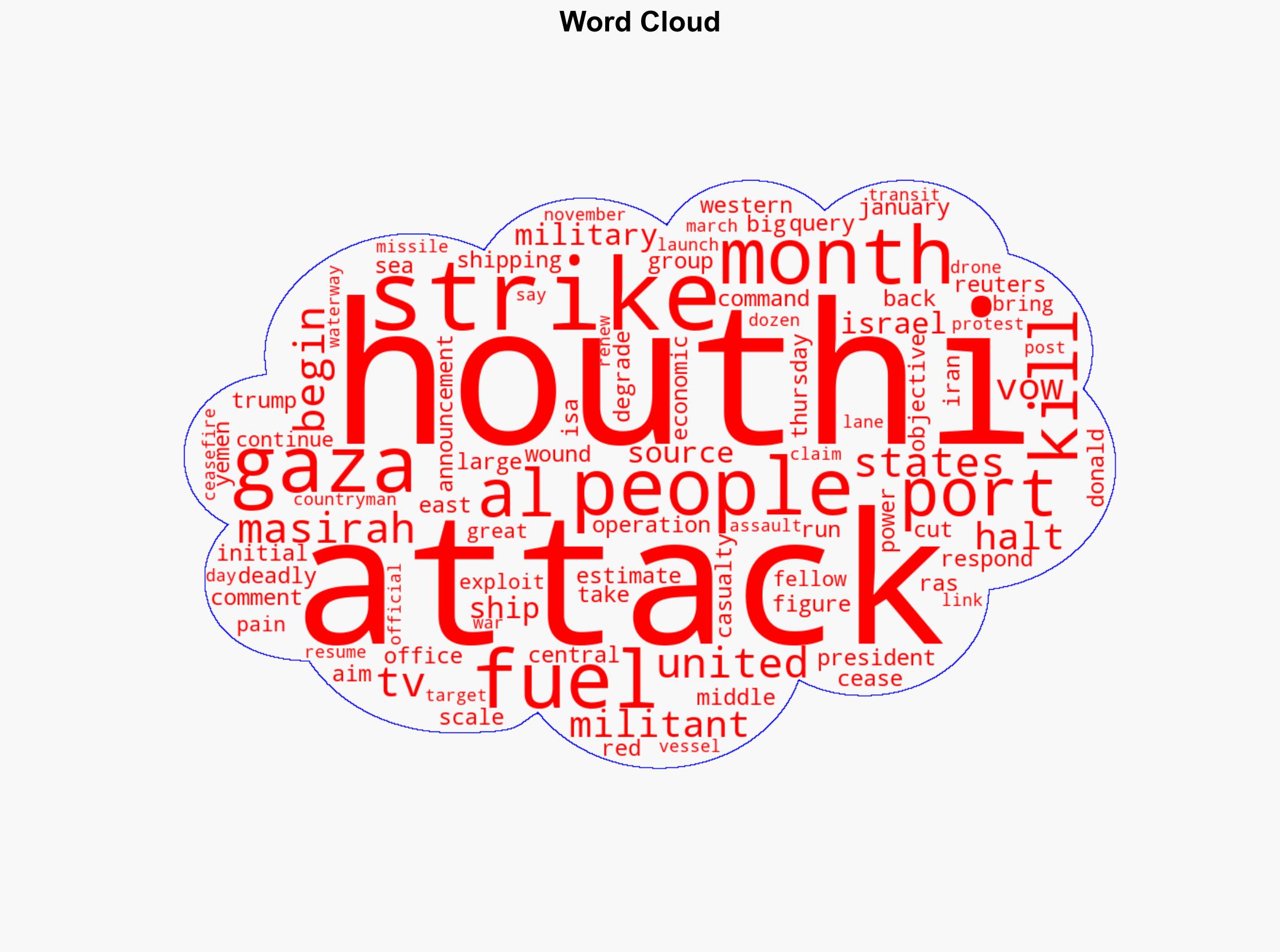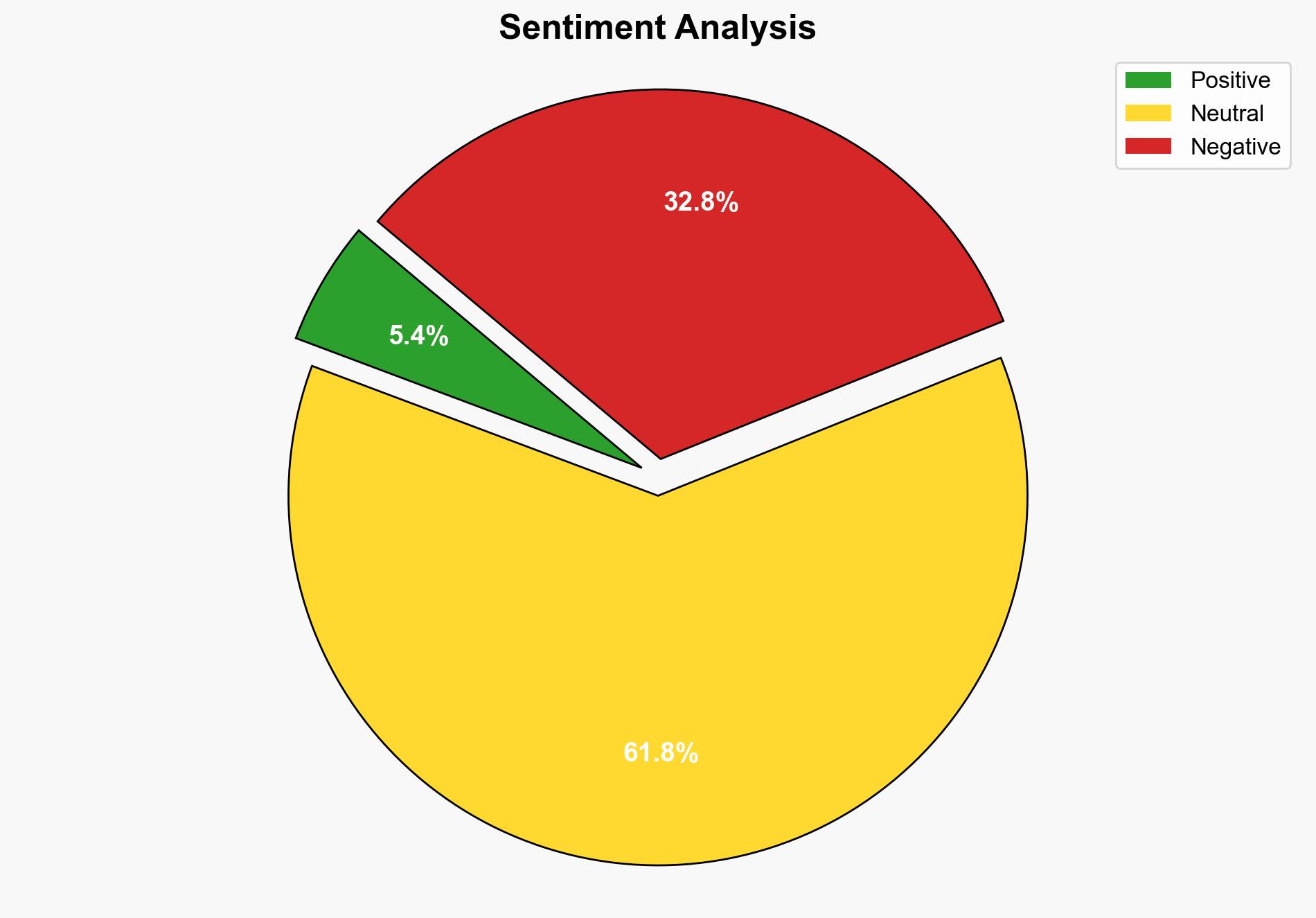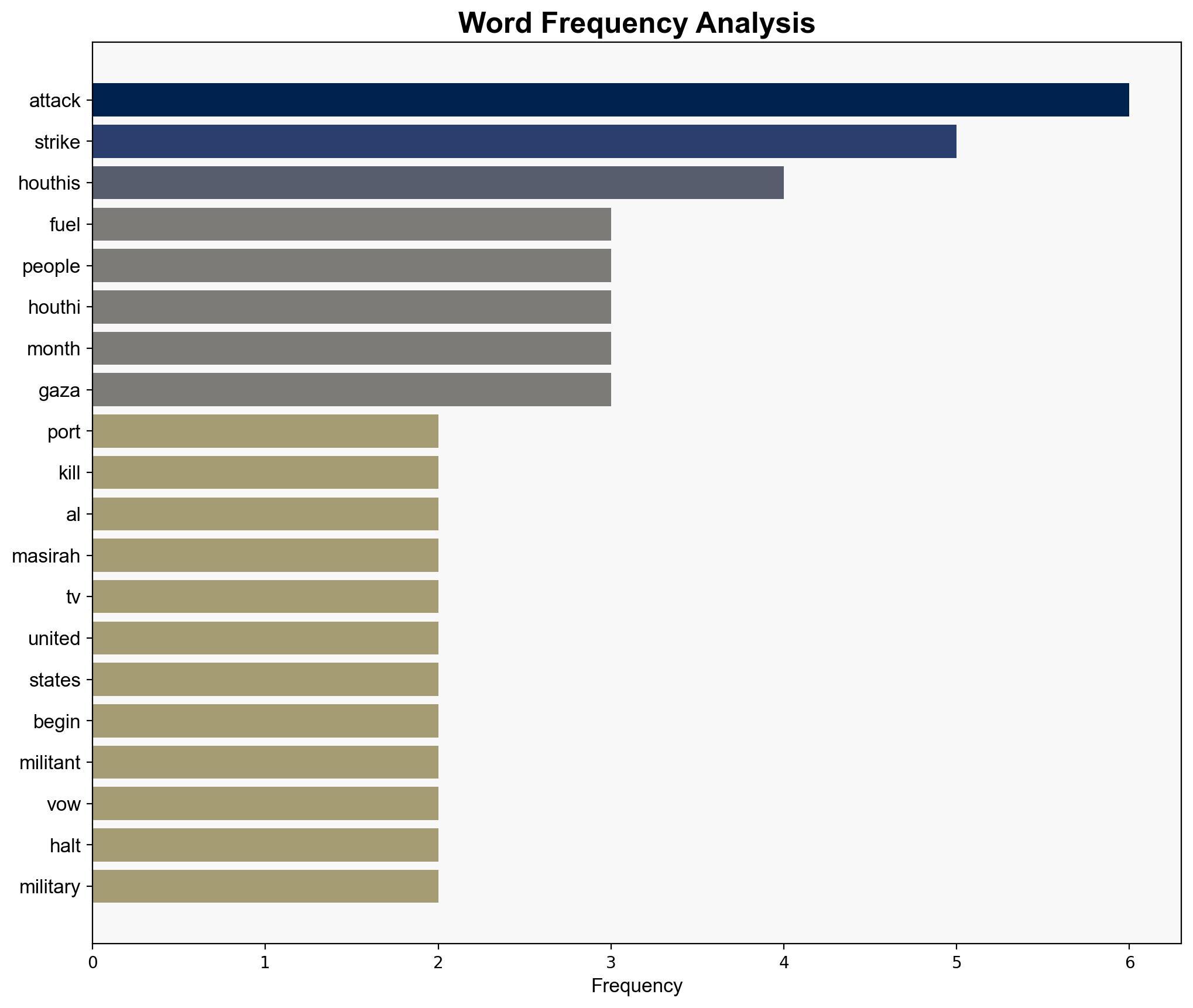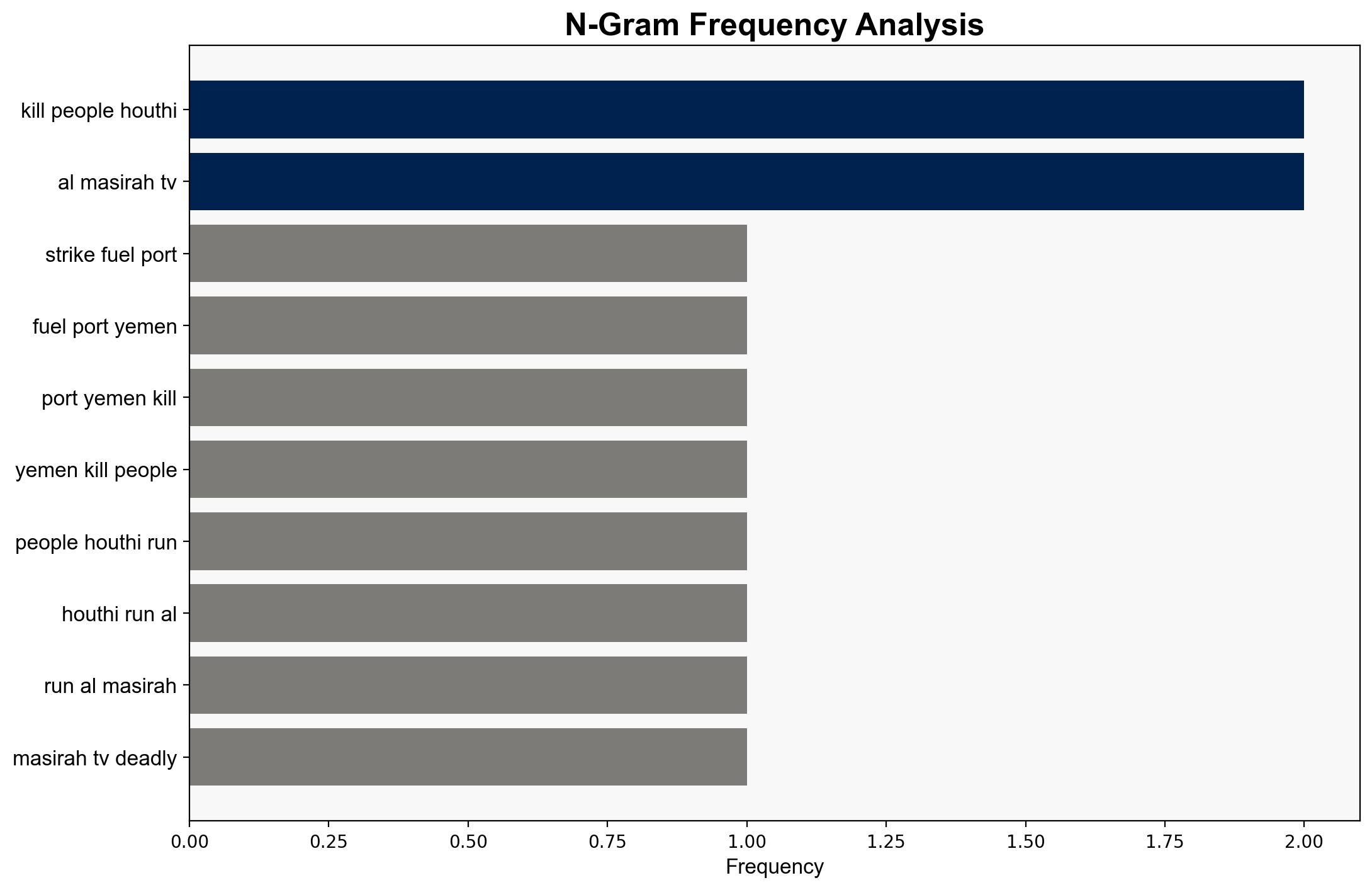US strike on a fuel port in Yemen kills at least 58 Houthi media says – NBC News
Published on: 2025-04-18
Intelligence Report: US strike on a fuel port in Yemen kills at least 58 Houthi media says – NBC News
1. BLUF (Bottom Line Up Front)
The recent U.S. military strike on a fuel port in Yemen, resulting in at least 58 casualties according to Houthi media, marks a significant escalation in the ongoing conflict. This operation aims to weaken the economic capabilities of the Houthi group, which has been conducting attacks on Red Sea shipping. The strategic objective is to deter further Houthi aggression while maintaining pressure on their resources. Continued U.S. military engagement in the region is likely unless the Houthis cease their attacks. Immediate diplomatic engagement is recommended to prevent further escalation and humanitarian impact.
2. Detailed Analysis
The following structured analytic techniques have been applied:
SWOT Analysis
Strengths: The U.S. military’s capability to conduct precise strikes can disrupt Houthi operations and limit their access to resources.
Weaknesses: Potential backlash from regional actors and increased anti-U.S. sentiment could undermine broader strategic goals.
Opportunities: Diplomatic channels could be leveraged to negotiate a ceasefire, reducing regional tensions.
Threats: Escalation of conflict could destabilize the region further, impacting global shipping routes and energy markets.
Cross-Impact Matrix
The U.S. strikes in Yemen may influence neighboring regions by increasing tensions with Iran, potentially affecting diplomatic relations and regional alliances. The conflict could also impact global oil prices and shipping security in the Red Sea.
Scenario Generation
Scenario 1: Continued U.S. strikes lead to a temporary reduction in Houthi attacks, but without a diplomatic resolution, the conflict persists.
Scenario 2: Successful diplomatic negotiations result in a ceasefire, stabilizing the region and reducing the risk of further military engagements.
Scenario 3: Escalation of hostilities leads to broader regional conflict, involving additional state and non-state actors.
3. Implications and Strategic Risks
The ongoing conflict poses significant risks to regional stability, with potential spillover effects on international shipping lanes and energy markets. The humanitarian impact is severe, with civilian casualties likely to increase if hostilities continue. The geopolitical landscape may shift, affecting alliances and regional power dynamics.
4. Recommendations and Outlook
- Engage in diplomatic efforts to broker a ceasefire, leveraging international partners to mediate discussions.
- Enhance intelligence-sharing with regional allies to monitor Houthi activities and preempt potential threats.
- Prepare for potential humanitarian aid deployment to mitigate civilian suffering in affected areas.
- Scenario-based projections suggest that without diplomatic intervention, the conflict may escalate, necessitating contingency planning for broader regional involvement.
5. Key Individuals and Entities
– Houthi leadership
– U.S. Central Command
– Al Masirah TV




